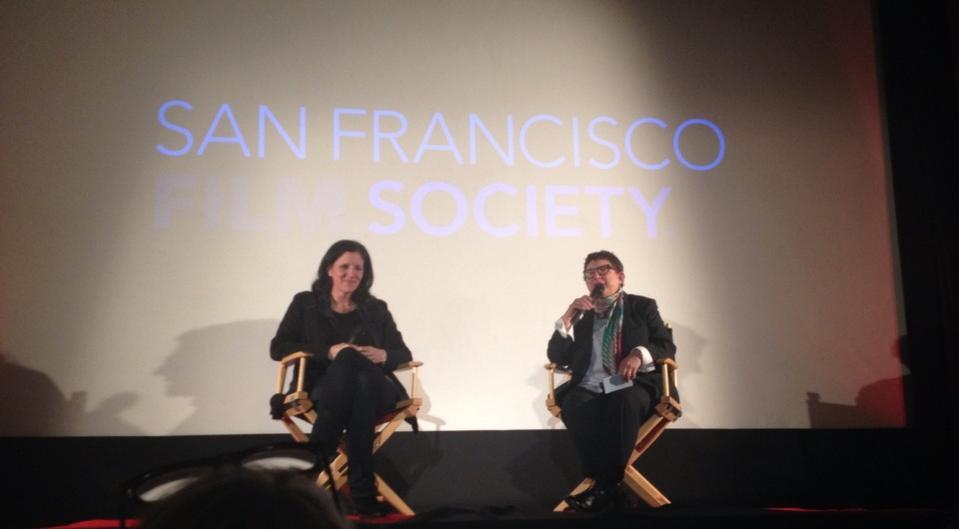Citizenfour, an incredible documentary about Edward Snowden

I went to the bathroom once during the screening of Citizenfour. It took about a half hour before I felt comfortable leaving to miss what was onscreen, and when I walked back I noticed the room was 10º warmer than outside and filled with the smell of sweat. We were having a human experience.
Citizenfour, a documentary about Edward Snowden’s first few days of revelation which opens in theaters this Friday, is mesmerizing. It feels more like an espionage fiction film, and I had to continually remind myself I was watching a documentary about real life events, and then pinch myself as the implications of Snowden’s revelations hit me in waves, again and again. Thanks to the San Francisco Film Society and Noah Cowan for hosting the event, and SF’s Vogue Theater for providing the venue.
He begins as a disembodied voice, attempting to get in touch with documentarian Laura Poitras and then journalist Glen Greenwald, verify private keys, ensure a secure connection, and eventually arrange a face-to-face meeting. Once Snowden appears, the camera rarely lifts off his face. It’s hard to even imagine what his previous ordinary demeanor might have been : this is a man who has traveled past the bounds of typical human experience, the magnitude of his actions leaving behind any possibility of another road forward. This is a man who faces the imminent possibility of martyrdom.
In some ways it is easier, he says, because I have so few choices now. I can act, then I can act again, and that’s it. For four days we live in Edward’s bubble with him. Time stops. Then it moves again, faster than ever before.
Through the reactions of Glen Greenwald and occasional dips into the news cycle, we relive our society’s shock in discovering the full extent of government surveillance: dozens of drone camera feeds, chains of command that lead directly to the president, and the British surveillance agency which is the envy of the NSA for its scope and breadth (don’t worry, they let the U.S. use it when we want to, which is a lot.) But the character of these revelations is different. Thesea aren’t daily articles embedded in a news cycle of commentary, spin, rebuttal, and willful disbelief. They are conviction in one man’s eyes and a massive data dump, all at once: an anvil poised to destroy our worldview when denial creeps in.
The film is masterfully shot, much of it by Poitras herself: from the dark hallway of their Hong Kong hotel draped in ethereal light to the edge-of-your-seat email exchange sequences. It is tied together with an expert hand. The music (I wasn’t surprized when Trent Reznor was listed as having written the entire score) drove the film’s anxious, steady energy. This film could easily win the Academy Award.
I asked the first question (about what safeguards they used that weren’t shown in the film) but what I really wanted to ask was whether they plan to release the film for free eventually. The urgency and scope of this documentary give a compelling argument for a free release, which would extend its reach at least a hundredfold. As difficult of a financial decision that would be, I hope the filmmakers consider it. Maybe they could make their money with Google ads…
